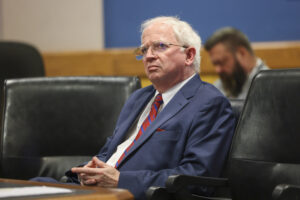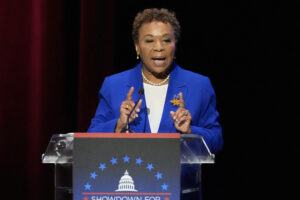The Gay Marriage Paradox
Imagine what it would be like not to be able to marry the person with whom you want to spend the rest of your life. Then imagine how tens of thousands of gays and lesbians in California must have felt last week when the California Supreme Court declared that homosexuals have a right to marriage under the state's constitution.WASHINGTON — Imagine what it would be like not to be able to marry the person with whom you want to spend the rest of your life. Then imagine how tens of thousands of gays and lesbians in California must have felt last week when the California Supreme Court declared that homosexuals have a right to marriage under the state’s constitution.
My visceral reaction to this decision, rendered by a moderately conservative court dominated by Republicans, was to share the joy of the gay and lesbian couples you saw celebrating on television. But my practical reaction was to wonder whether this decision would speed or slow our country’s steady change of heart on the matter of recognizing committed gay relationships.
As it happens, I am one of the millions of Americans whose minds have changed on this issue. Like many of my fellow citizens, I was sympathetic to granting gay couples the rights of married people, but balked at applying the word marriage to their unions.
“That word and the idea behind it,” I wrote 13 years ago, “carry philosophical and theological meanings that are getting increasingly muddled and could become more so if it were applied even more broadly.”
Like a lot of people, I decided I was wrong. What moved me were the conservative arguments for gay marriage put forward by the writers Jonathan Rauch and Andrew Sullivan and New York Times columnist David Brooks.
They see society as having a powerful interest in building respect for long-term commitment and fidelity in sexual relationships and that gay marriage underscores how important commitment is. Prohibiting members of one part of our population from making a public and legal commitment to each other does not strengthen marriage; it weakens it.
And, as a New York Court of Appeals judge cited by the California court majority noted, fundamental rights “cannot be denied to particular groups on the ground that these groups have historically been denied those rights.” If history and tradition had constrained us, equal rights for African-Americans would never have become law.
But to find a constitutional right to gay marriage, the California majority chose to argue that the state’s very progressive law endorsing domestic partnerships for homosexuals — it grants all the rights of marriage except the name — was itself a form of discrimination.
This is odd and potentially destructive. As Justice Carol Corrigan argued in her dissent, “to make its case for a constitutional violation, the majority distorts and diminishes the historic achievements” of the state’s Domestic Partnership Act.
That’s true, and in many states, it will take years for a political and legal consensus in favor of gay marriage to develop. In the interim, civil unions or domestic partnerships are the best hope homosexuals in these states have for some form of legal recognition for their relationships. The danger is that foes of civil unions will use the court’s own logic to argue that such arrangements are not a political halfway house but lead inexorably to gay marriage. It would be unfortunate if California’s breakthrough were used to stall significant if more modest progress elsewhere.
There is a complicated interaction between court decisions and the working of democratic politics. On the one hand, there are times when only the courts can vindicate the rights of minorities. On the other hand, rights are more firmly rooted when they are established or ratified by democratic majorities. In the case of gay marriage in California, a majority could still overturn this decision by amending the state constitution to ban same-sex marriage — and a proposition to this effect is likely to appear on this fall’s ballot.
Corrigan stated flatly that she personally supports gay marriage but argued that in a democracy, “the people should be given a fair chance to set the pace of change without judicial interference.” She added: “If there is to be a new understanding of the meaning of marriage in California, it should develop among the people of our state and find its expression at the ballot box.”
The good news from California is that the people will ultimately decide the question, and I hope that a reaction against “judicial activism” does not hamper the marriage equality movement. As for most other states, domestic partnerships and civil unions will come long before gay marriage does. Nothing the California court majority said should deter these states from recognizing that gays and lesbians, no less than heterosexuals, have a right to the community’s recognition of the seriousness of their commitments.
E.J. Dionne’s e-mail address is postchat(at)aol.com.
© 2008, Washington Post Writers Group
Your support matters…Independent journalism is under threat and overshadowed by heavily funded mainstream media.
You can help level the playing field. Become a member.
Your tax-deductible contribution keeps us digging beneath the headlines to give you thought-provoking, investigative reporting and analysis that unearths what's really happening- without compromise.
Give today to support our courageous, independent journalists.






You need to be a supporter to comment.
There are currently no responses to this article.
Be the first to respond.